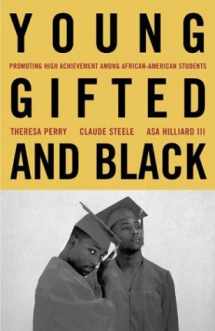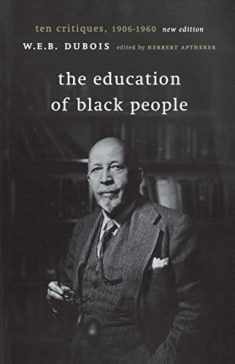
Young, Gifted, and Black: Promoting High Achievement Among African-American Students
Book details
Summary
Description
Three African-American intellectuals on a crucial educational issue of our time
A huge portion of the school reform debate in America—explicitly and implicitly—is framed around the success and failure of African-American children in school. The test-score “achievement gap” between white and black students, especially, is a driving and divisive issue.
Yet the voices of prominent African-American intellectuals have been conspicuously left out of the debate about black children.
Young, Gifted, and Black sets out to reframe the terms of that debate. The authors argue that understanding how children experience the struggle of being black in America is essential to improving how schools serve them.
Taking on liberals and conservatives alike, Theresa Perry argues that all kinds of contemporary school settings systematically undermine motivation and achievement for black students. She draws on history, narrative, and research to outline an African-American tradition of education for liberation and to suggest what kinds of settings black children need most. Claude Steele reports stunningly clear empirical psychological evidence that when black students believe they are being judged as members of a stereotyped group rather than as individuals, they do worse on tests. He calls the mechanism at work “stereotype threat,” and reflects on its broad implications for schools. Asa Hilliard ends the book with an essay on actual schools around the country where African-American students achieve at high levels.
Theresa Perry is professor of education at Wheelock College in Boston and coeditor of The Real Ebonics Debate (Beacon / 3145-3 / $14.00 pb). Claude Steele is professor of psychology at Stanford University in Palo Alto, California. Asa Hilliard is professor of education at Georgia State University in Atlanta.
"These three very different essays go a long way toward raising the level of the national discussion about 'achievement gaps.' They point us toward a gap in teacher quality, toward a gap in the social structures that support a positive achievement identity in youngsters, a gap in public knowledge of excellence, past and present, in African American education, a gap in appropriate racial socialization. The authors insist on higher goals than just better test scores and they never lose sight of the rootedness of today's problems in historic and contemporary discourses about Black intellectual inferiority. These timely essays do more than restate the problem; they each offer concrete suggestions for resolving it. Collectively, they reform the discussion of 'reform.' "
--Charles Payne, Sally Dalton Robinson Professor of History, African American Studies and Sociology, Duke University, and author of I've Got the Light of Freedom: The Organizing Tradition and the Mississippi Freedom Movement
"I am awed by the lucidity and careful crafting of these essays. The authors -- all scholars of impeccable credentials in their respective fields -- capture with unprecedented cogency the real issues surrounding the so-called 'achievement gap.' No one who reads this book can ever suggest that we don't know what to do to promote high achievement for African American students. The question is, do we really want to do so." --Lisa Delpit, author of Other People's Children, and Executive Director and Eminent Scholar of the Center for Urban Education & Innovation, Florida International University


We would LOVE it if you could help us and other readers by reviewing the book
Book review




